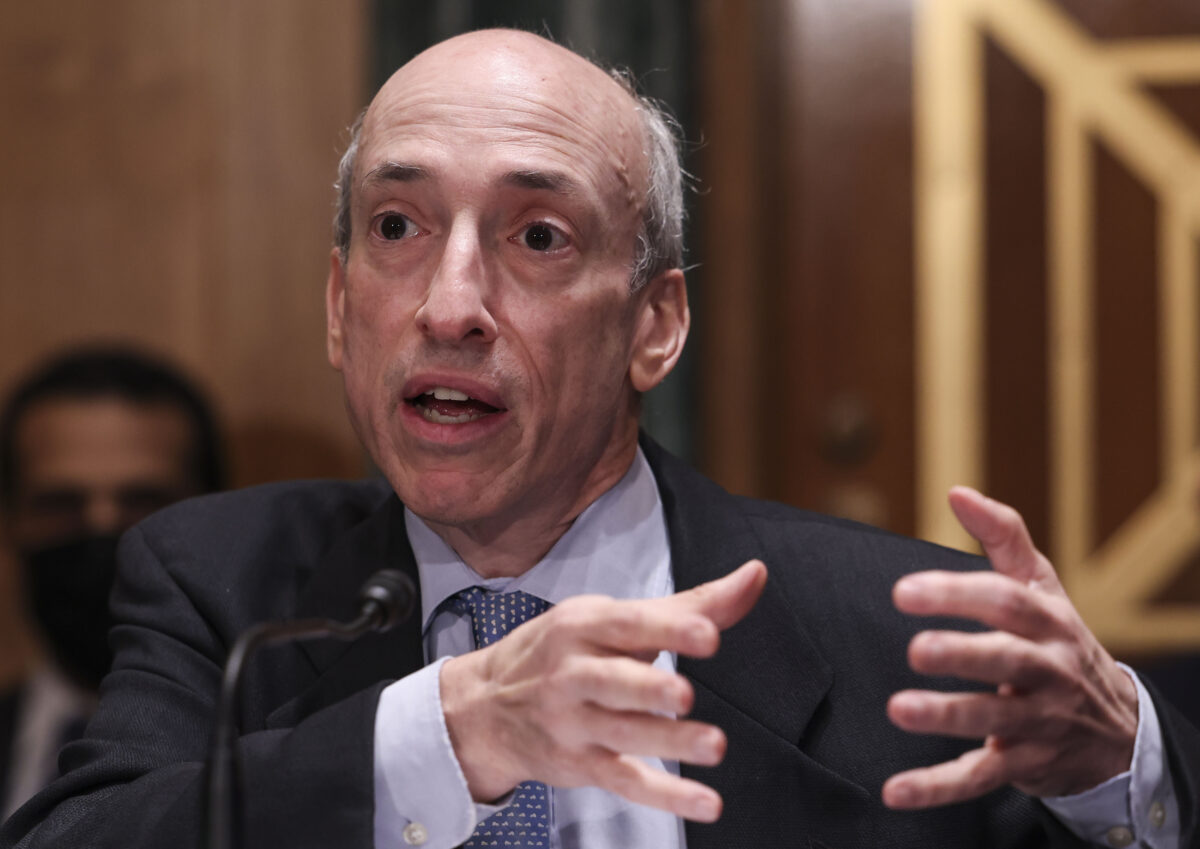


Commentary
Yesterday, the Securities and Exchange Commission (SEC) fired a bombshell at the cryptocurrency industry. It is suing Coinbase, a publicly traded company which the SEC approved after going through its business plan to publicly list for trading two years ago. It is also suing Binance, a crypto currency exchange that is domiciled in Hong Kong, but has a U.S. subsidiary.
The Twitter account Unusual Whales reported that before the SEC pounced, someone had purchased out-of-the money puts on Coinbase for $100,000 that turned into millions of dollars when the SEC announced. Let’s hope it wasn’t a congressperson or other government insider.
You might think to yourself, “Ah crypto, it’s a scam, so who cares?”
I am not going to try and persuade you on the validity of crypto or not, but I do think that in America we need a freedom to innovate. Innovation creates competition, which creates a better lifestyle for all Americans.
There have been frauds in crypto, but blaming the frauds on the innovation of crypto is the same as saying that it’s the gun’s fault when a shooting occurs. Certainly, there are issues in the crypto industry that need to be addressed, but the SEC has abdicated its duty in addressing them and instead is playing hardball politics with a different end game in mind.
People that are “right of center” politically get very upset when President Jpe Biden uses the Department of Justice or Internal Revenue Service to attack political enemies. They should. They also should be just as upset about the SEC attacking political enemies, albeit in a different form.
To set the stage, Northwestern law professor John McGinnis has done a lot of research and writing on cryptocurrency. He sees it as a form of freedom and liberty. He has stated, “Will the State objectively regulate cryptocurrencies when cryptocurrency has the ability to topple one of the State’s greatest powers, money creation?” I think that after yesterday’s SEC action we can conclude that the answer is undeniably, “No.”
Buried in the flurry of news on the lawsuits was the fact that Republican lawmakers on both the House Agricultural Committee and House Financial Services Committee released a cryptocurrency regulation bill that they had been working on for months. They solicited and received input from the banking and financial services industry along with the cryptocurrency industry’s input.
Here is what is interesting about the bill. For years, the cryptocurrency industry has asked the SEC to be clear about its intentions regarding regulation. The agency has been opaque, and under current chair Gary Gensler, it has been ferocious in its attempts to destabilize the industry in the name of protecting people from fraud.
However, destruction of the industry is looking more and more like the true goal of the SEC, along with the U.S. Treasury Department. They want to wreck the competition the cryptocurrency industry brings to the table and issue a digital dollar. This is the same playbook the Chinese used. A digital dollar would be horrible for anyone that values freedom and liberty. There are even those who have opined that the reason Silicon Valley Bank, Signature Bank, and First Republic Bank were folded up was that they provided a lot of the on/off ramps between fiat government-backed currency and cryptocurrency. Many crypto companies were banking there.
This is not dissimilar in the way the National Federation of Teachers Union and the Department of Education treat the school choice movement.
The Republican bill took some of the regulatory teeth and turf away from the SEC. One example is that the bill clarifies the difference between a commodity and security. Commodities fall under the purview of the Commodity Futures Trading Commission (CFTC), and the House and Senate Agriculture committees. Securities fall under the purview of the SEC, the House Financial Services Committee, and the Senate Banking Committee.
Democrats did not participate in the writing of this bill, and it looks like they told by the Biden administration to not participate since the administration was working behind the scenes using the SEC and U.S. Treasury.
The bill creates a “decentralization” test to help decide whether a particular token is a commodity, but that wouldn’t exclude it from necessarily becoming a security, depending on how it’s used. If it has no central form of governance and no intermediaries, it is a commodity.
For example, Bitcoin has no central authority or central form of governance. Under the Republican bill, it would be a commodity, and the CFTC would regulate it. Stablecoins like USDC or Tether do have a form of central authority, and would fall under SEC regulation.
That definition grabs and clarifies regulation and takes power away from the SEC, and the executive branch of government, returning it to the marketplace. If there is one thing we know about a government agency, it’s they will do anything to retain any shred of power and budget.
We need to call yesterday’s action by the SEC exactly what it is. It is a brazen political attempt endorsed and actively enabled by the Biden administration to destroy an industry and grab more turf for itself. It is a political attempt to try and take any credit away from Republicans who worked steadfastly on a set of laws the industry has desired for many years. If the Republican bill became law, the sunlight would shine on them—and that is something the Biden administration will not tolerate.
Views expressed in this article are the opinions of the author and do not necessarily reflect the views of The Epoch Times.
